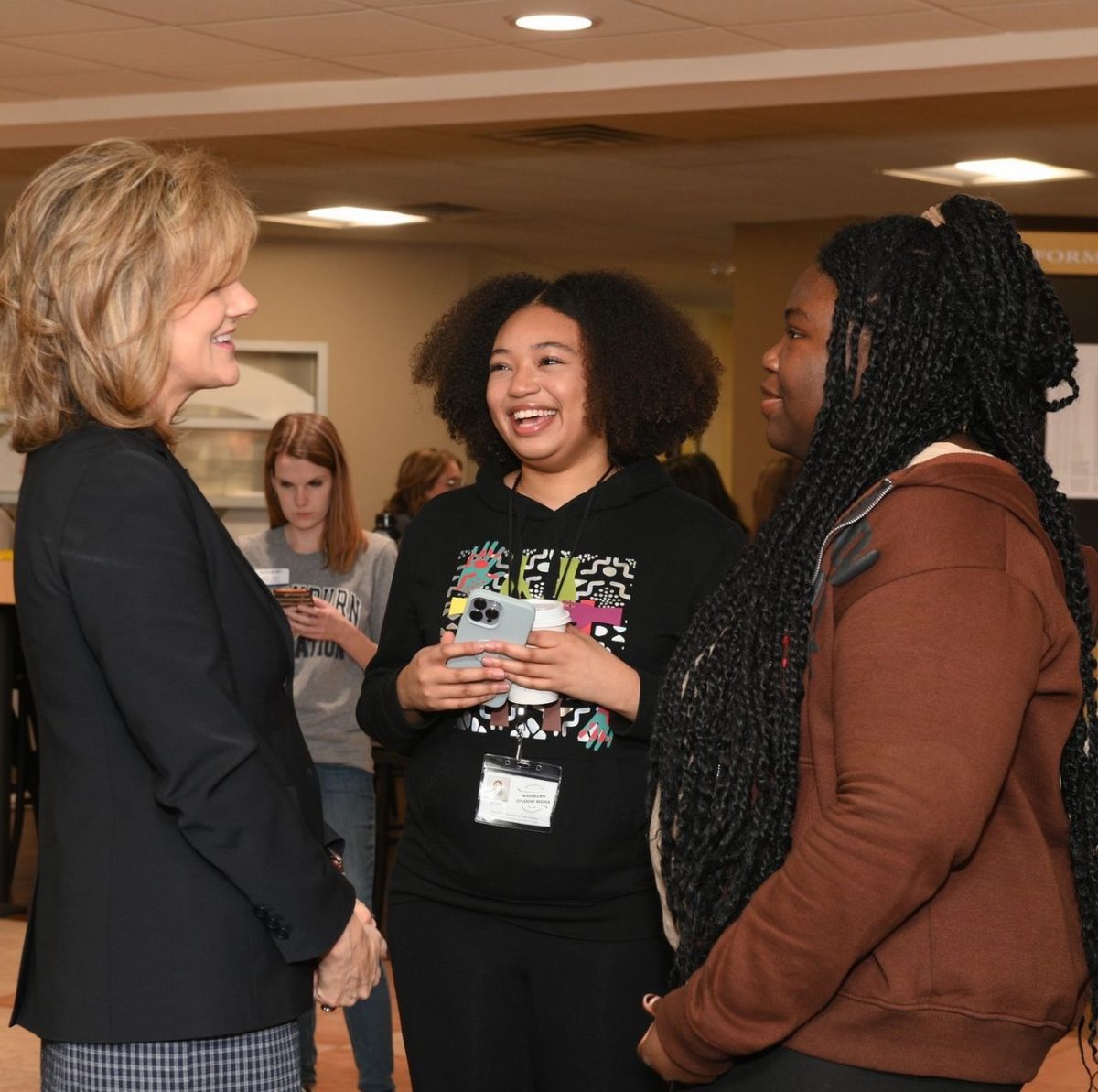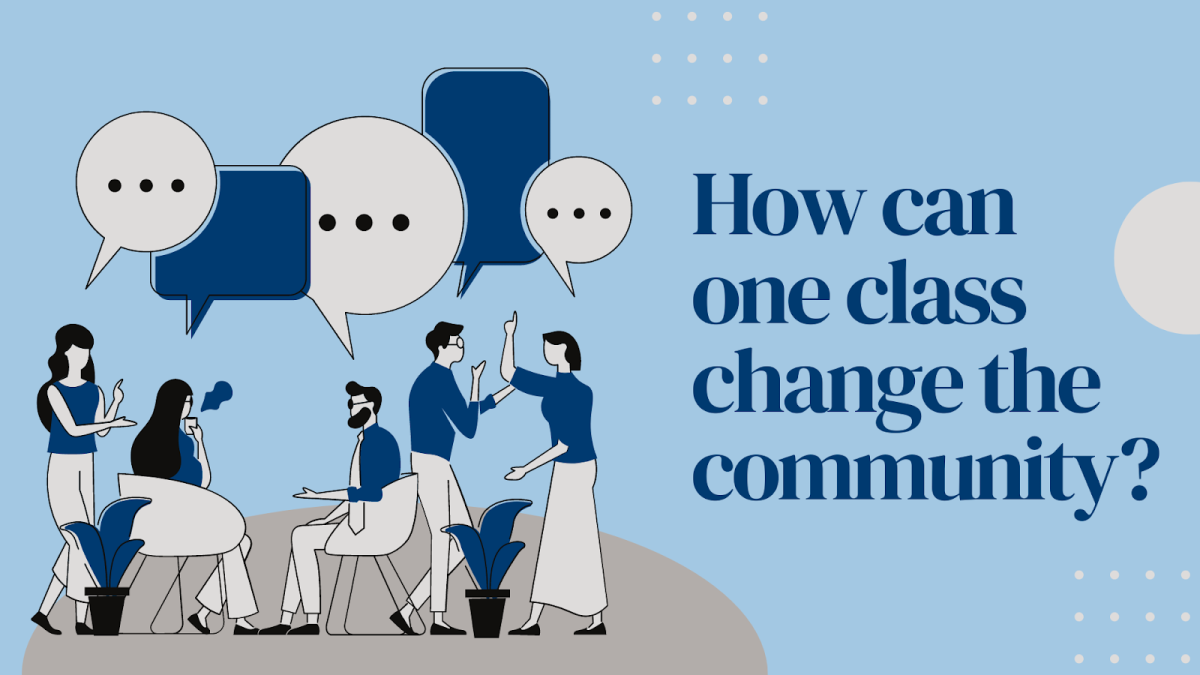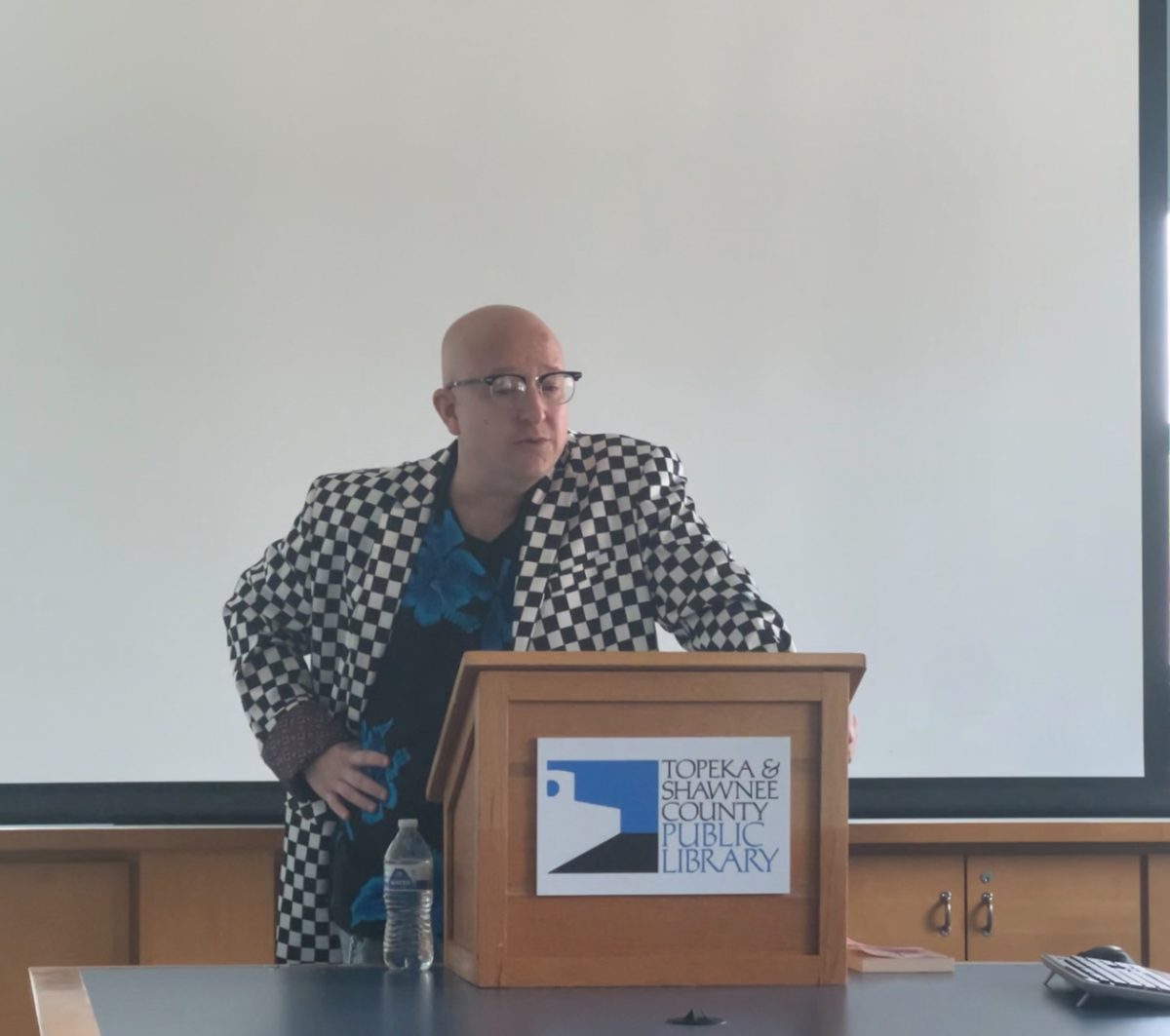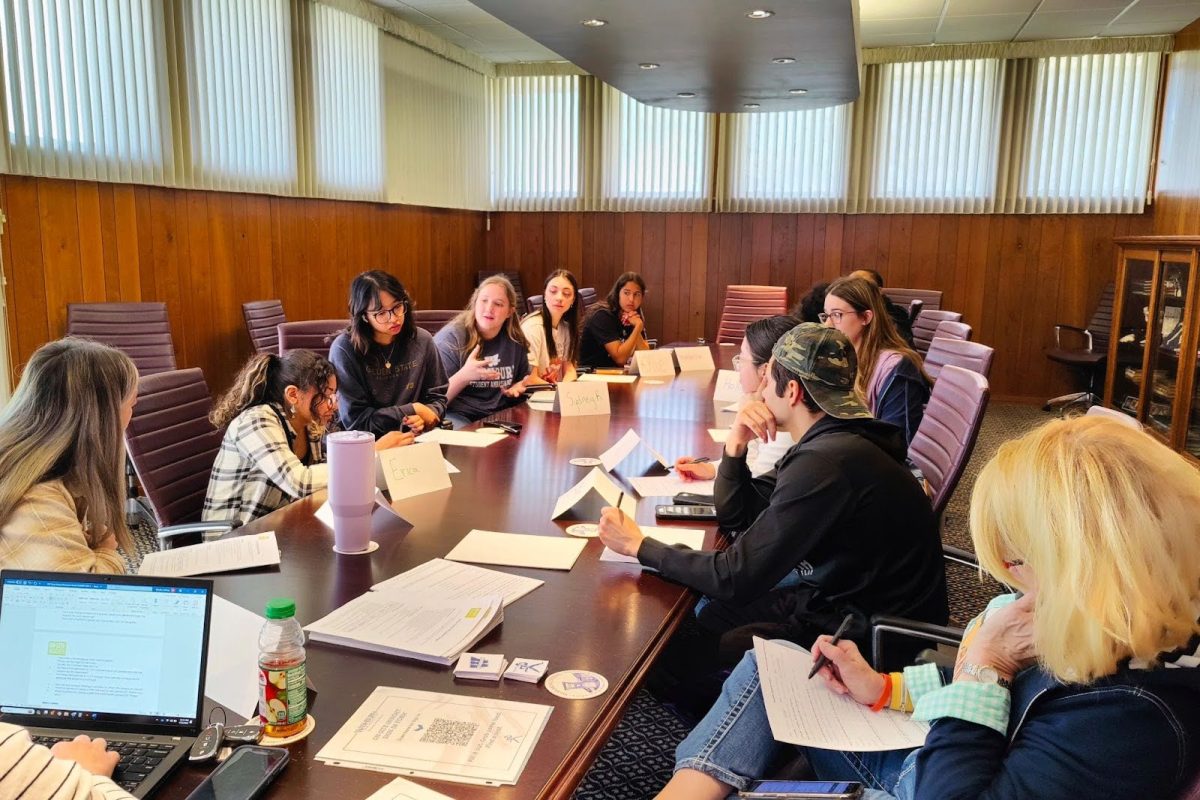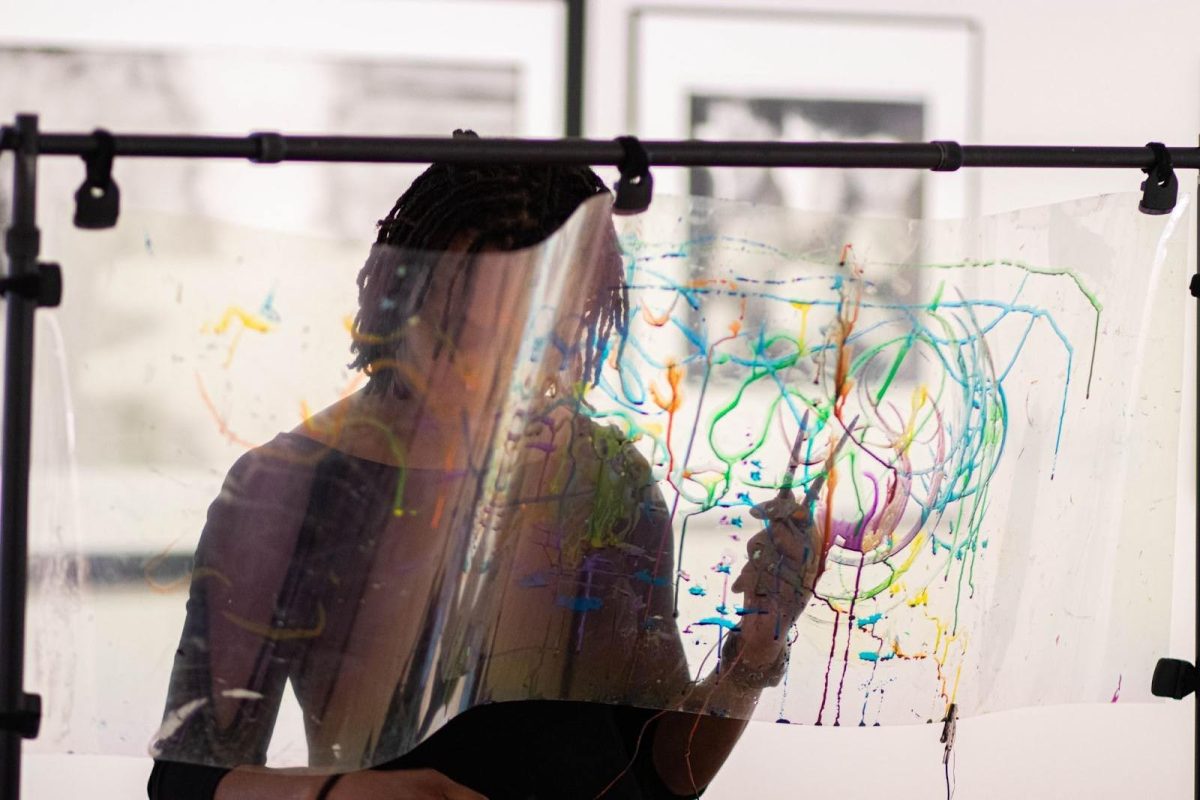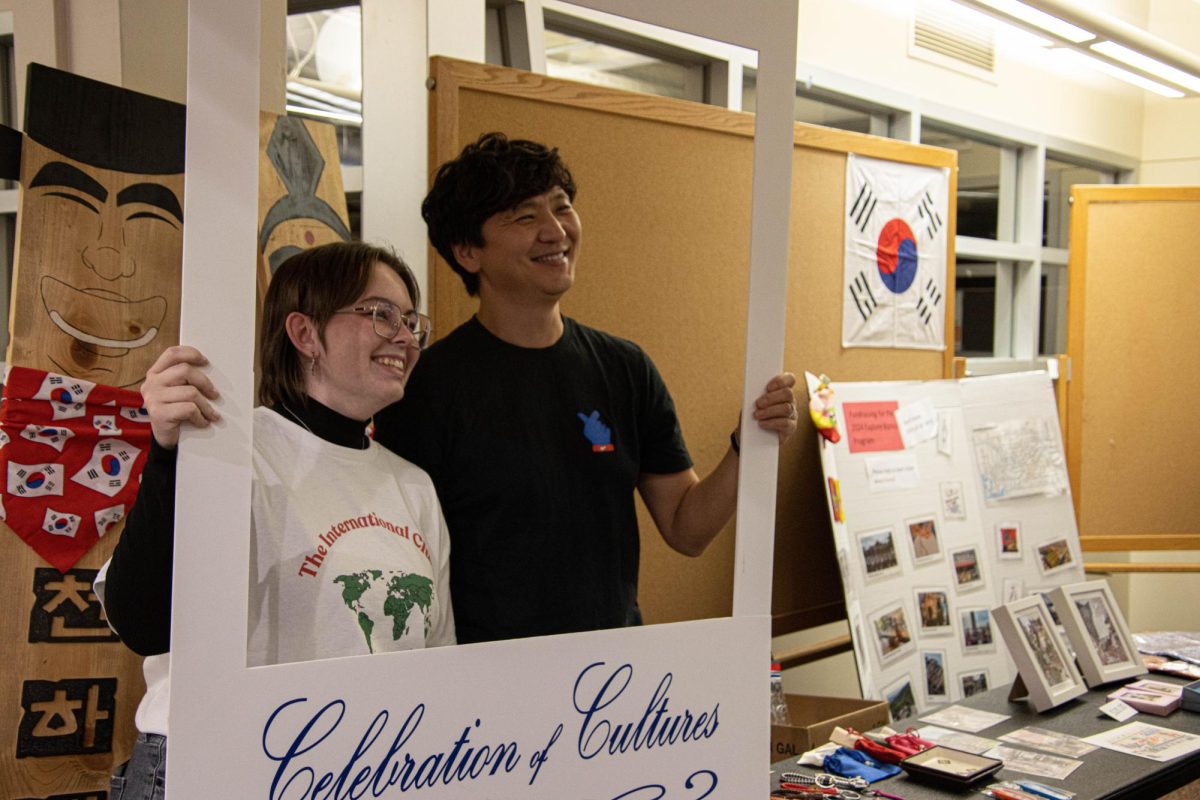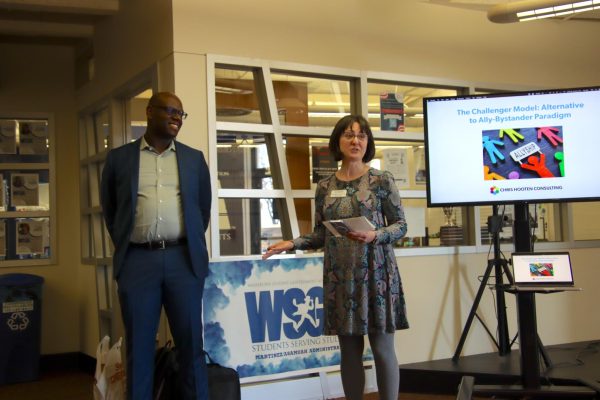
(Eden Conrad)
On Thursday, Feb. 22, Washburn University invited Chris Hooten, award-winning speaker, writer and educator on intersectional neurodiversity and LGBTQ+ inclusion, to speak at a student workshop.
Hooten’s workshop, “The Challenge Model: A Powerful Alternative to Allyship,” was intended to give students an alternative to the model of allyship. Before getting into the talk, Hooten told the students about themself and why they invented this new support system.
“I have a background in equity work. I started with fighting for marriage equality in Indiana. When I was 19, I participated in the first wave of Black Lives Matter, so participations, protests, demonstrations, those kinds of things. I am also a survivor of adverse childhood experiences. I grew up in an abusive household and I just learned early on that wasn’t okay. So, I have been fighting for justice and equity my entire life, just in a variety of different settings, and I decided to turn this into my profession because I was just so passionate about it,” Hooten said.
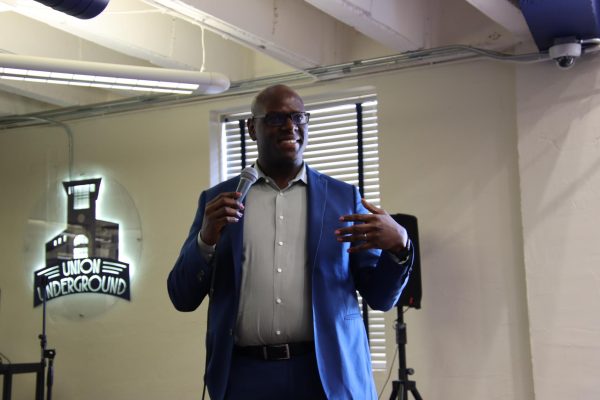
Hooten went on to ask the crowd what came to mind when they thought of the term intersectional neurodiversity. Hooten’s entire presentation revolved around student participation, which was enjoyed by those in attendance.
“I like how it was very insightful, and [they weren’t] preaching to us. It’s like an open conversation type of thing, and not a lecture,” said Desireé Cain, junior psychology major.
Rather than allyship, Hooten explained another system of support they invented called The Challenge Model, which consists of catalysts, cheerleaders, the concerned, coaches and challengers.
“I define catalysts as people, who when they see a harm happen, or the potential for a harm, they kind of lean that direction, they sort of start the fire, they rely on cheerleaders,” Hooten said.
Cheerleaders are those who support, but don’t actively engage the issue. There are those who are concerned but aren’t going to do anything. Then there are coaches, who are people that have relationships with those who are doing harm and then ask those people to reflect.
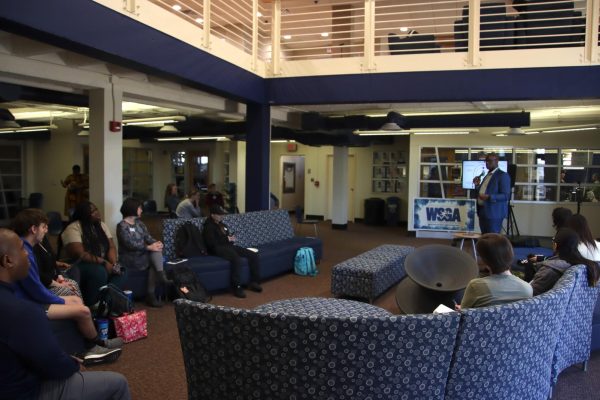
(Eden Conrad)
Hooten elaborates on coaches by speaking on the way those causing harm are treated in the allyship model. When being an ally bystander, to prevent those causing harm, bystanders have to be the shield that guards the vulnerable.
“I’m not going to be able to talk to that person in the barber shop and tell them, ‘hey, stop saying transphobic things.’ I’m not,” Hooten said. “They don’t care what I think.”
Hooten states that this example is why people need close relationships to those doing harm so that the marginalized have some leverage. Someone who cares about them and loves them, even though they are doing harm. This idea was further explained when Hooten said that while they love their grandmother dearly, she has anti-Hispanic sentiments, and in this situation, Hooten had to be the catalyst.
However, it doesn’t take an award to spark change. Hooten themself was only 19 during their first protest, and this led them to their current passion in changing lives. All it takes is a first step.
Edited by Jeremy Ford and Jayme Thompson




